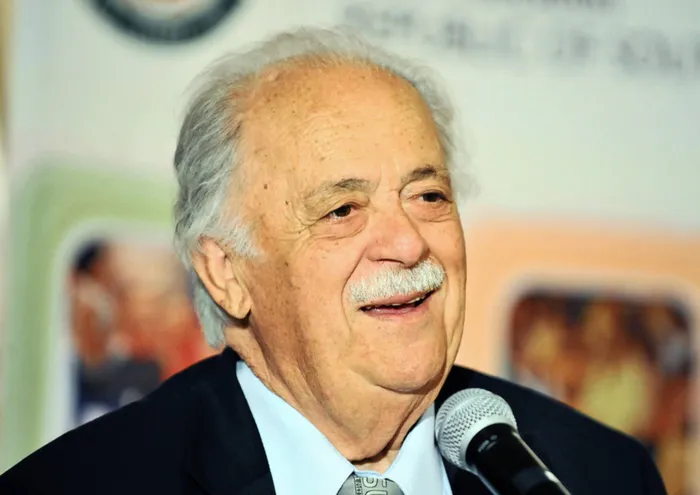‘Kragdadigheid’ reigned at Marikana

Human rights lawyer George Bizos. File photo: Antoine de Ras Human rights lawyer George Bizos. File photo: Antoine de Ras
Rustenburg - A culture of “kragdadigheid” (forcefulness) influenced police at the time protesters were shot dead in Marikana, North West, the Farlam Commission of Inquiry heard on Friday.
George Bizos SC, for the Legal Resource Centre and the Bench Marks Foundation, said this Afrikaans term most aptly described the police attitude during the events at Marikana.
He said he could not think of an English word which conveyed the same meaning.
The commission is holding public hearings into the circumstances surrounding the deaths of 34 striking miners shot by police on August 16, and the deaths 10 people in strike-related violence in the preceding week.
During the hearing at the Rustenburg Civic Centre on Friday, Bizos referred to statements attributed to former safety and security deputy minister Susan Shabangu in 2008.
Shabangu, who is now minister of mineral resources, reportedly told police to shoot to kill when dealing with criminals.
“You must kill the bastards if they threaten you or the community,” Bizos quoted Shabangu as saying.
He was cross-examining Maj-Gen Charl Annandale, who led the police special tactical operations team in Marikana.
Annandale was asked whether rank and file police members adopted an attitude of “kragdadigheid” after hearing such comments.
He replied that police were taught about the Constitution and legislation governing police conduct during their 24 months of basic training.
He denied hearing police in his region discussing Shabangu's statement, and that the rank and file would have interpreted it as an order.
It was an established fact that police who used excessive force were held accountable, Annandale said.
“What I do know... there is only one person who would have to stand in court; the person who took that action, not the people who uttered those words.”
Commission chairman retired judge Ian Farlam, asked that any internal police memoranda referring to Shabangu's statement be made available.
He also asked whether there was a link between Shabangu's statement and the events at Marikana, five years later.
Bizos said experts in various fields, including medical and crowd control, would provide evidence supporting the supposition that a culture of “kragdadigheid” influenced police action at Marikana.
Annandale told the commission the police at Marikana were “certainly not” influenced by these sentiments in dealing with the protesters.
Bizos suggested that North West deputy police commissioner Lt-Gen William Mpembe was sidelined on August 16 because he had not supported the plan to disarm and disperse protesters.
Annandale denied this, and said Mpembe had been in overall command of the Joint Operations Centre at Marikana.
“He was the overall commander, he was involved throughout. He would himself come 1/8to the commission 3/8 to give this evidence.”
Ishmael Semenya, for the SA Police Service, said Mpembe had signed the police plan of action for August 16, which indicated that he supported the plan.
Bizos said he based his view on notes from a meeting between Mpembe and union leaders on August 15.
Farlam raised concerns about the context and interpretation of the evidence, and suggested that Mpembe address his attitudes and involvement when he testified before the commission.
The commission resumes on Monday. - Sapa